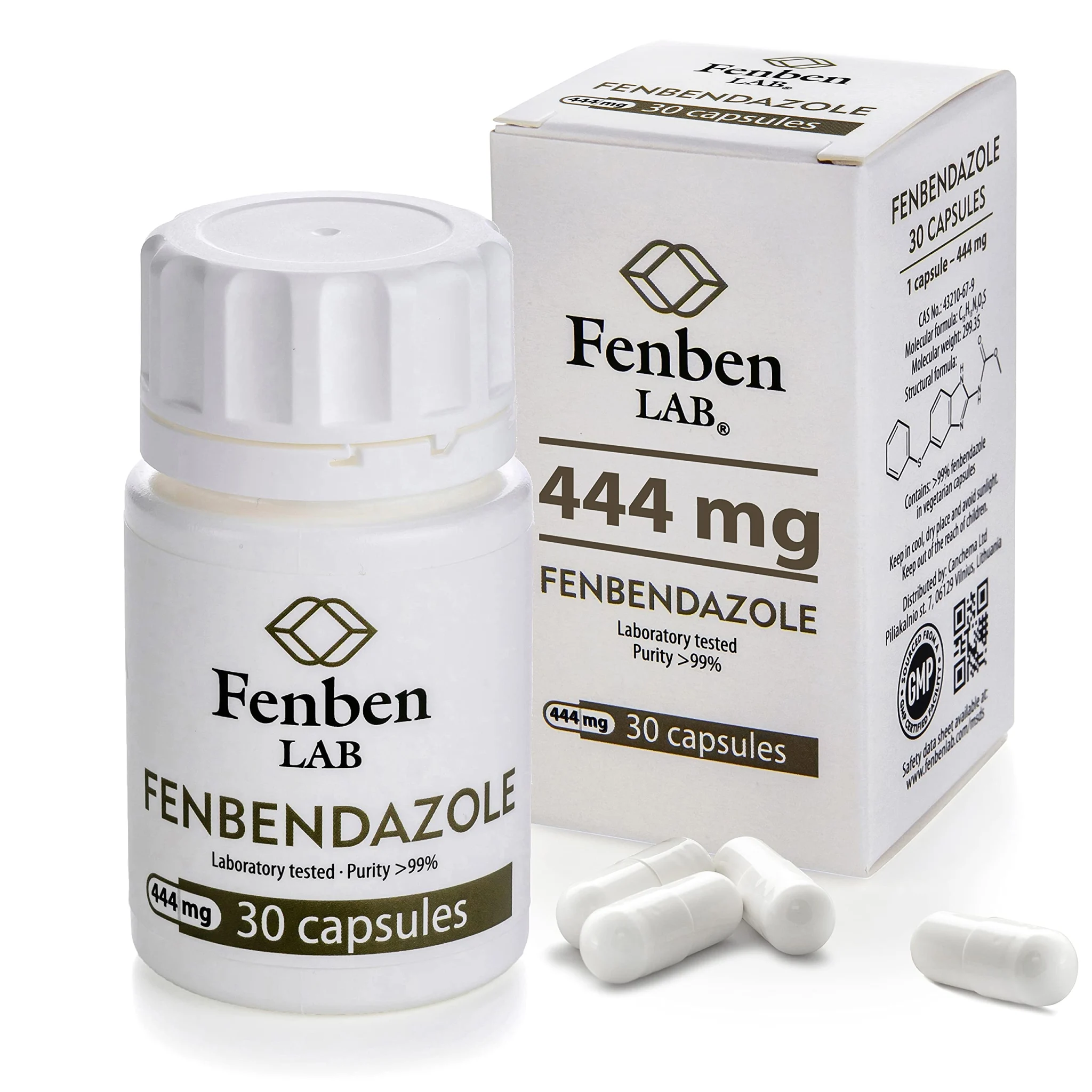What is Fenbendazole?
Fenbendazole is an anthelmintic medication primarily used to treat parasitic infections in animals, especially in veterinary medicine. It belongs to the benzimidazole class of drugs and is known for its effectiveness against a variety of intestinal parasites, including roundworms, hookworms, and tapeworms. The compound works by disrupting the energy metabolism of the parasites, ultimately leading to their death. Though primarily used in veterinary contexts, fenbendazole has garnered attention for its potential applications in human medicine, particularly in the treatment of certain cancers.
Veterinary Applications of Fenbendazole
In veterinary medicine, fenbendazole is widely used to manage and control parasitic infections in various animals, including dogs, cats, cattle, and horses. It is often administered as a powder mixed with food or as a paste. Fenbendazole’s broad-spectrum efficacy makes it a preferred choice for veterinarians when treating conditions like giardiasis, strongyloides infections, and other parasitic diseases. One of its significant advantages is its safety profile; fenbendazole is generally well-tolerated, with minimal side effects, making it suitable for use in a variety of animal populations. Furthermore, the drug is often part of a comprehensive deworming strategy, helping to prevent the reinfestation of parasites in livestock and pets.
Potential Human Benefits of Fenbendazole
Beyond its veterinary applications, fenbendazole has attracted interest for its potential anticancer properties. Some studies have suggested that fenbendazole may inhibit the growth of certain cancer cells, particularly in cases of pancreatic cancer, lung cancer, and others. The drug’s mechanism of action in humans appears to be similar to that in animals, where it disrupts the metabolism of rapidly dividing cells, such as cancer cells. However, while initial findings are promising, it is essential to approach these results with caution. Research is still ongoing, and fenbendazole is not yet approved for human use in treating cancer. Patients should always consult healthcare professionals before considering any off-label use of veterinary medications.
The Future of Fenbendazole Research
As research on fenbendazole continues to expand, its potential applications may diversify beyond what is currently understood. Scientists are exploring its effects in various contexts, including its interactions with other cancer therapies, its potential role in combating drug-resistant parasites, and its efficacy in treating other diseases. Clinical trials will be crucial in determining the safety and efficacy of fenbendazole for human use, especially regarding cancer treatment. The future may hold a more significant role for fenbendazole in both veterinary and human medicine, with ongoing studies shedding light on its full therapeutic potential. Awareness and education about fenbendazole will be essential for both veterinarians and healthcare providers as new evidence emerges.



